Is romance in movies dying?
Romance is playing an ever-smaller role in storytelling in movies, raising the question of whether audiences are losing interest or simply finding love elsewhere.
Note: This week I will be at the Berlin Film Festival and European Film Market. If you want to grab a coffee, drop me a line.
Last year I published a study which showed that sex on screen has declined by almost 40% over the past quarter-century.
At the time, I was asked whether we could see a comparable decline in levels of romance or if we'd just lost the meaningless sex (which happens to us all, with time).
Well, in time for Valentine’s Day, I can share the results of some new research I have conducted into the changing role of romance in movies which answers that very question.
You’re not going to love this…
Let's start with a dramatic finding - the number of romantic movies being made is falling fast.
In 2000, 34.8% of films made were listed on IMDb as ‘Romance’, but that figure has since plummeted to 8.6% in the last couple of years.
If we zoom out further, we see that this decline isn’t entirely unprecedented.
Romance experienced a steep drop until the late 1960s, only to recover somewhat from the 1970s to around 2000.
This raises the question of whether the current decline signals the end of romance on the big screen or if it's just part of a decades-long cyclical fashion for different types of stories.
The data above uses IMDb's classification of a 'romance' movie, which allows for movies to be assigned multiple genres. This means we can't really get a sense of how significant romance actually is to the movies’ events and characters.
To tackle this, I built up a database of movie synopses for 17,430 movies and set about looking at what function romance plays in the plot.
Romance isn’t just disappearing as a genre
It turns out that the role romance plays in movies overall is also diminishing.
Looking at the proportion of films where romance is a major focus or subplot, we see the same downward trend since the early 2000s.
Where is the love?
Not all genres incorporate romance in the same way.
War, history, and horror films are the least likely to feature romance as a major plot element, while comedy, music, and (predictably) romance films rely on it the most.
Note: There’s an interesting issue with IMDb’s genre classifications. Some films tagged as "romance" don’t actually focus on romantic relationships at all. More on that in the Notes at the end of the article.
“Come with me if you want to truly live”
The biggest exception to this is action movies. While romance is disappearing from many genres, it has remained relatively steady - and even increased slightly - in action films.
The changing face of romance tropes
If romance is declining, are the types of romantic stories being told changing as well?
I focused on all movies which had at least a minor romantic subplot, right up to those where the movie’s main driver was romance. Within those romantic movies, I studied key romance tropes.
This revealed that enemies-to-lovers and forbidden love have been declining for decades, with the former having dropped significantly since the mid-20th century.
Perhaps the best glimmer of hope we have is the rise of slow-burn romances, and those around second chances, albeit the latter remains a small fraction of overall romantic storytelling.
What does this all mean?
It’s clear that romance is playing a smaller role in movies than it used to.
But does that mean audiences have lost interest in love stories more generally?
That seems unlikely. Rather than concluding that ‘romance is dead’, it feels more plausible to suggest that that audiences may be engaging with it differently.
Watching an emotionally intense romance can be a vulnerable experience - one perhaps better suited to the intimacy of home viewing rather than the big screen. This might explain why streaming services continue to produce romance-heavy content while feature filmmakers are leaning away from it.
Bonus question: How realistic is it to expect romance in your life?
I thought I would end on a fun (maybe also bleak?) fact.
I am currently in the thick of coming up with new records for the 2026 edition of the Guinness World Records, and I am able to give you a sneak peek at one of the new records.
The Guinness World Record for "The Least Realistic Genre" goes to... Romantic Comedies.
Based on OpusData data’s binary approach to genre classification, we can summarise that rom-coms are the least likely to be based on true-life events.
In my number-crunching of 57,375 movies, I have calculated that only 1.0% of rom-coms are based on true-life events, compared with 30.2% of dramas.
Notes
The data for today's research came from Wikipedia, OMDb, IMDb, Opus / The-Numbers.
It was interesting to integrate what IMDb did and did not think was a 'romance'. Any genre classification system will, by its very nature, be reductive and overly simplistic. My work breaking down romantic themes in plots gave me a slightly more granular view, although, of course, it still suffers from oversimplification when compared to the whole running time of a movie.
The small cadre of movies that IMDb flags as romance, but with which I disagree, highlighted this. Some were confusing sex and romance (e.g. films about porn and sex work), while others just had no meaningful romance.
A good example of the latter is A Prairie Home Companion. Although classed as ‘Romance’ by IMDB, the film is primarily about the end of an era, nostalgia, mortality, and the camaraderie among the performers and crew. While there are brief moments of flirtation and references to past relationships, I don’t feel that romance is driving the story forward or impacting the central themes. Romance is incidental rather than meaningful to the plot.



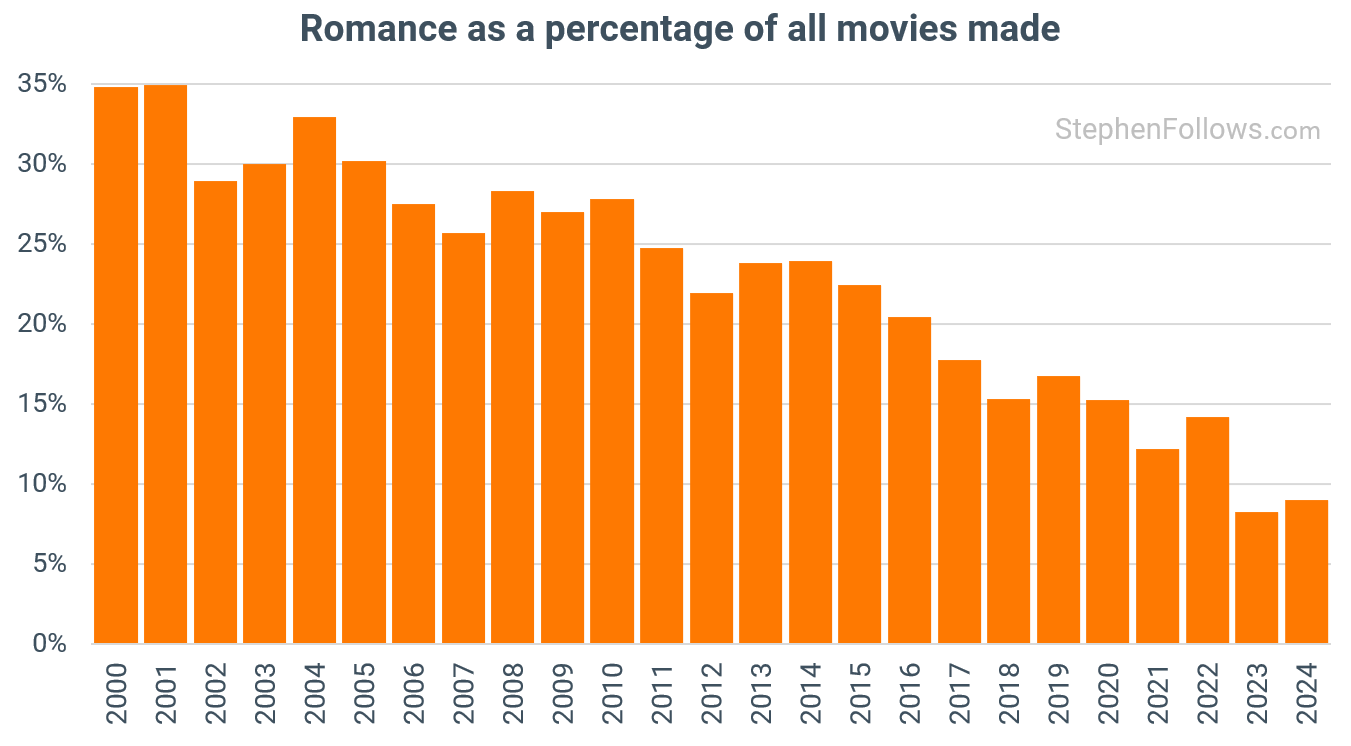
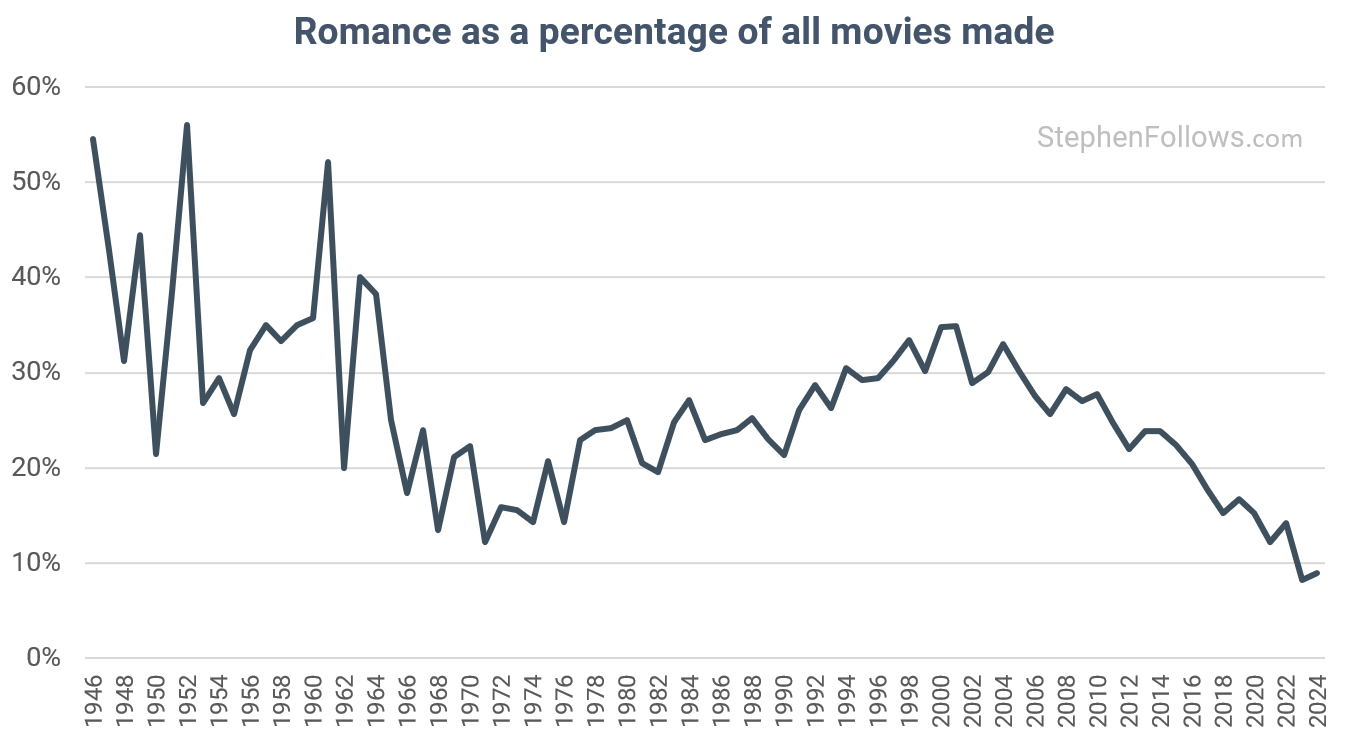

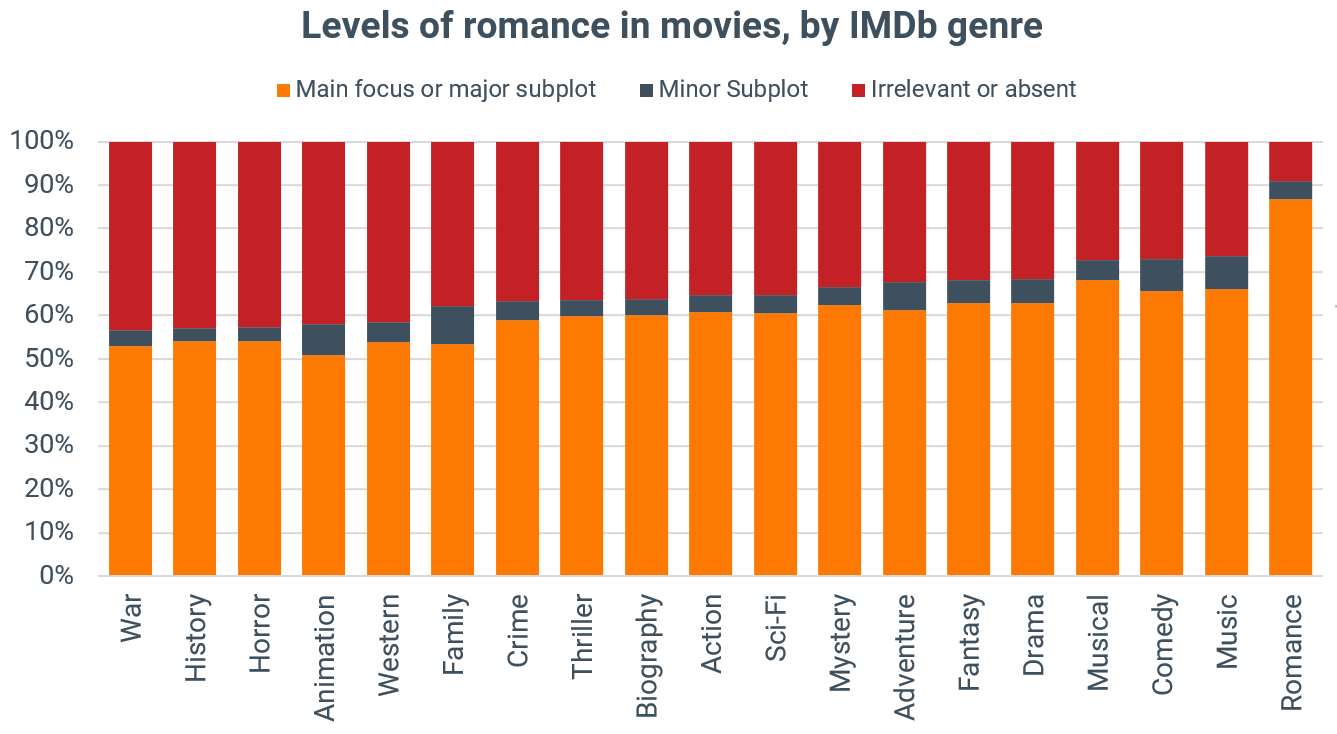
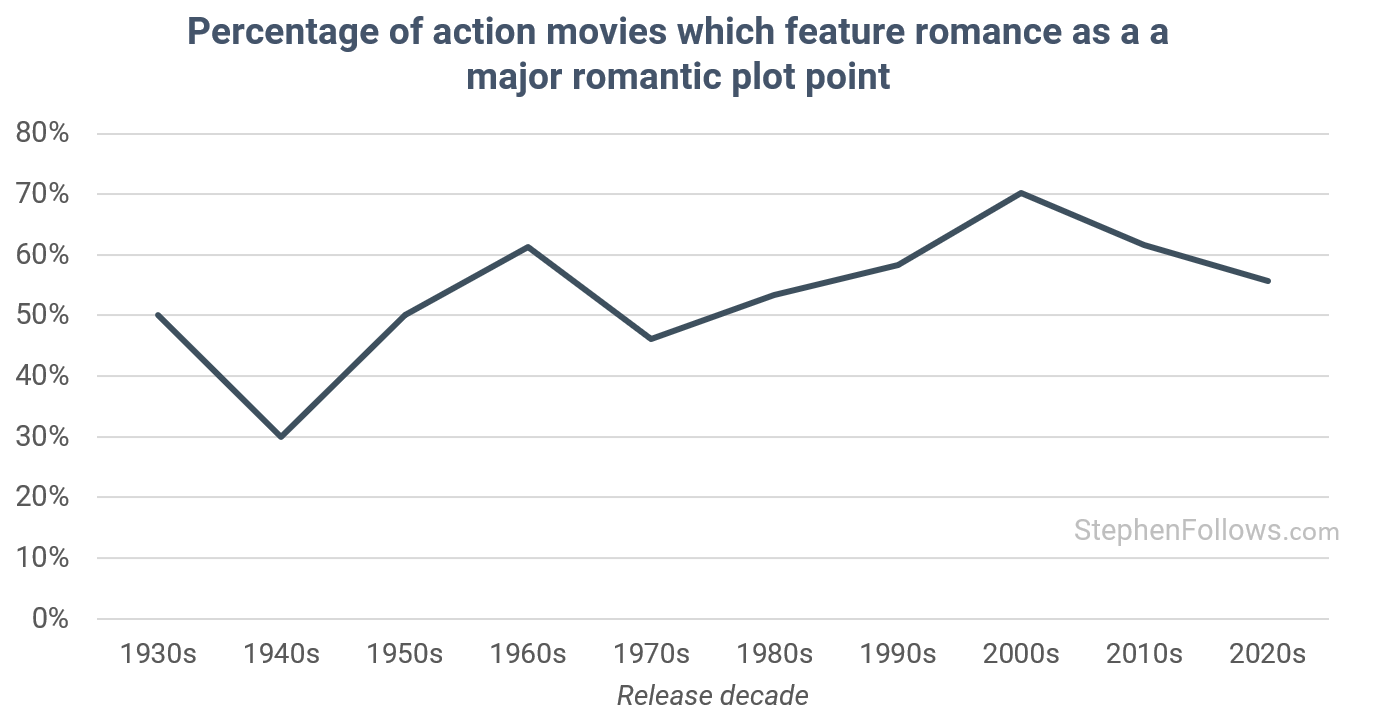
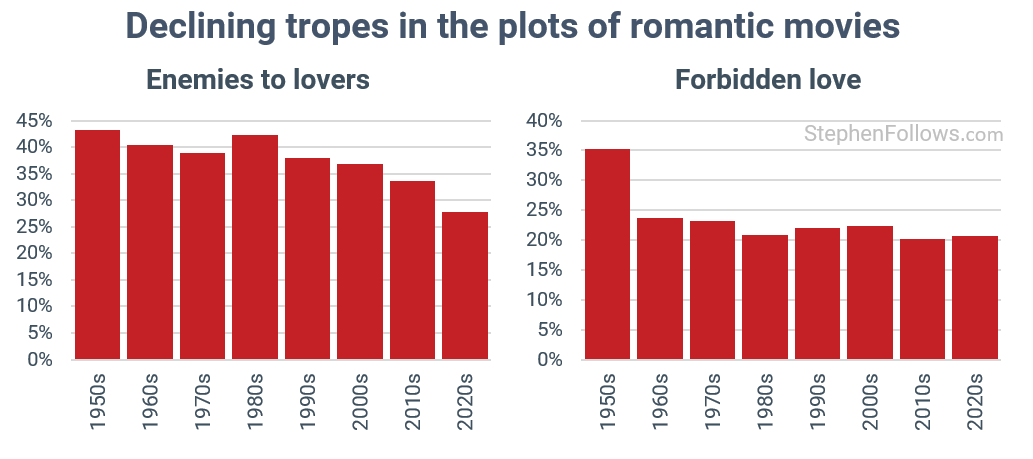
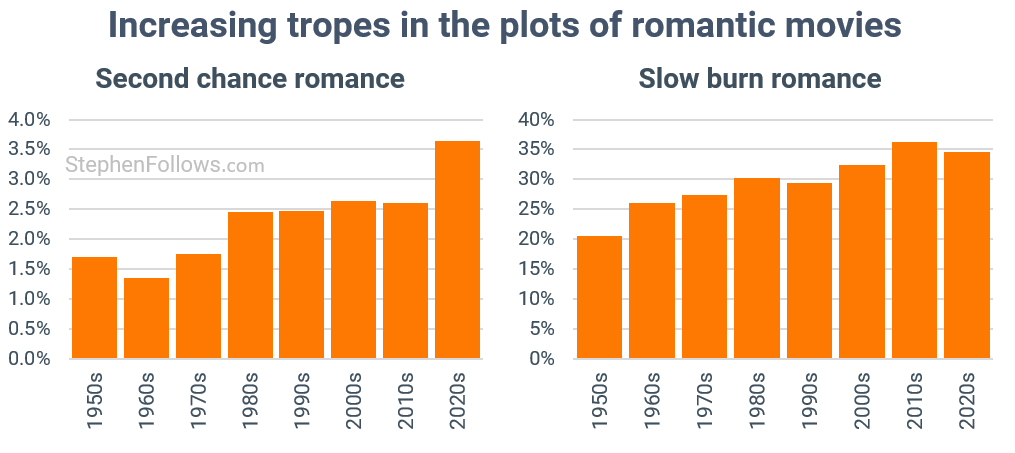
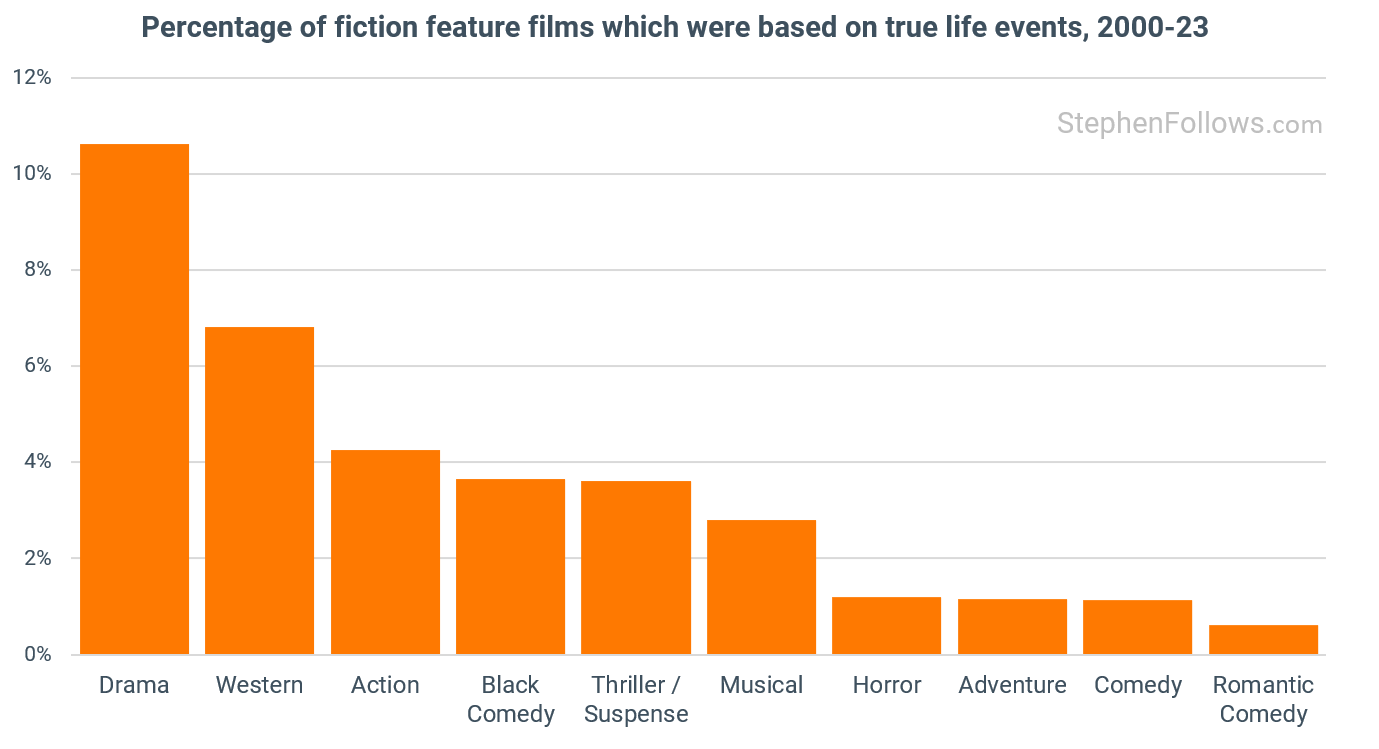
This is so interesting - especially for me as a filmmaker currently making a 'Romance' movie.
I think the industry just realized that it's much easier to make an average thriller, drama, or action movie. If not great, it can still pass for it. No such thing with a romantic comedies. It's unwatchable when not great. Romance is simply a much harder genre.
The decline in romance correlates with the feminist movement of the 60’s and 2020’s. This article is touching on a root cause of theatrical films decline outside its competition with streamers- it’s the political-social ideological choke hold put on filmmakers by the ideologues. This is not a reflection of filmmakers or audiences but of ideological gate keepers. There is only so long humans can last without being allowed to laugh or fall in love (and in parallel only so long studios can use M&A’s and institutional external funding to survive). Eventually as a medium for art and entertainment, especially one combined with commerce- the ideological biases of progressivism and 4th wave feminism will need to be remove at least at a main stream level in order to survive. No more blaming the male gender, covid, strikes, Super Bowl weekend, streaming trends and so on- the industry must at last look in the mirror.